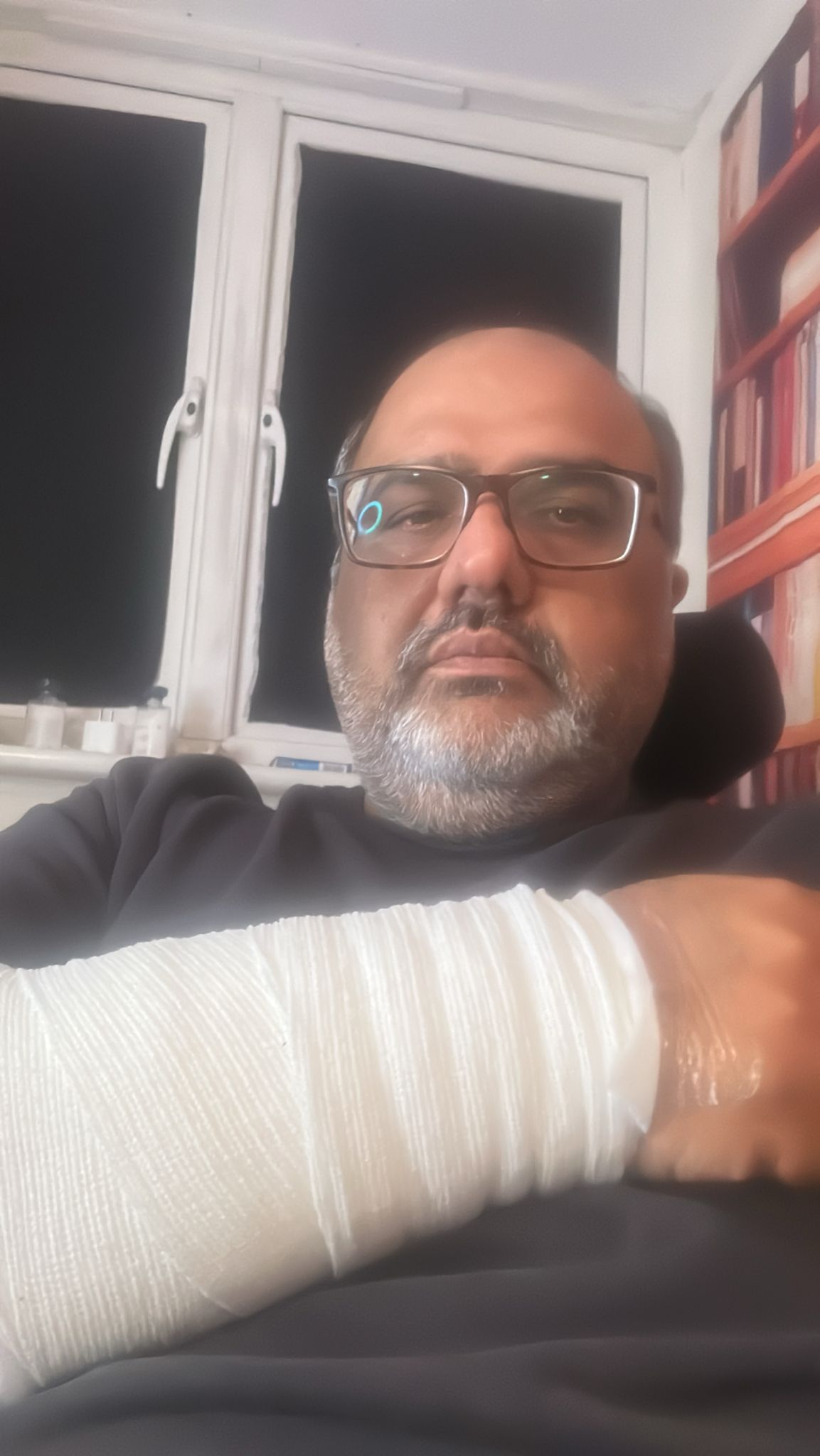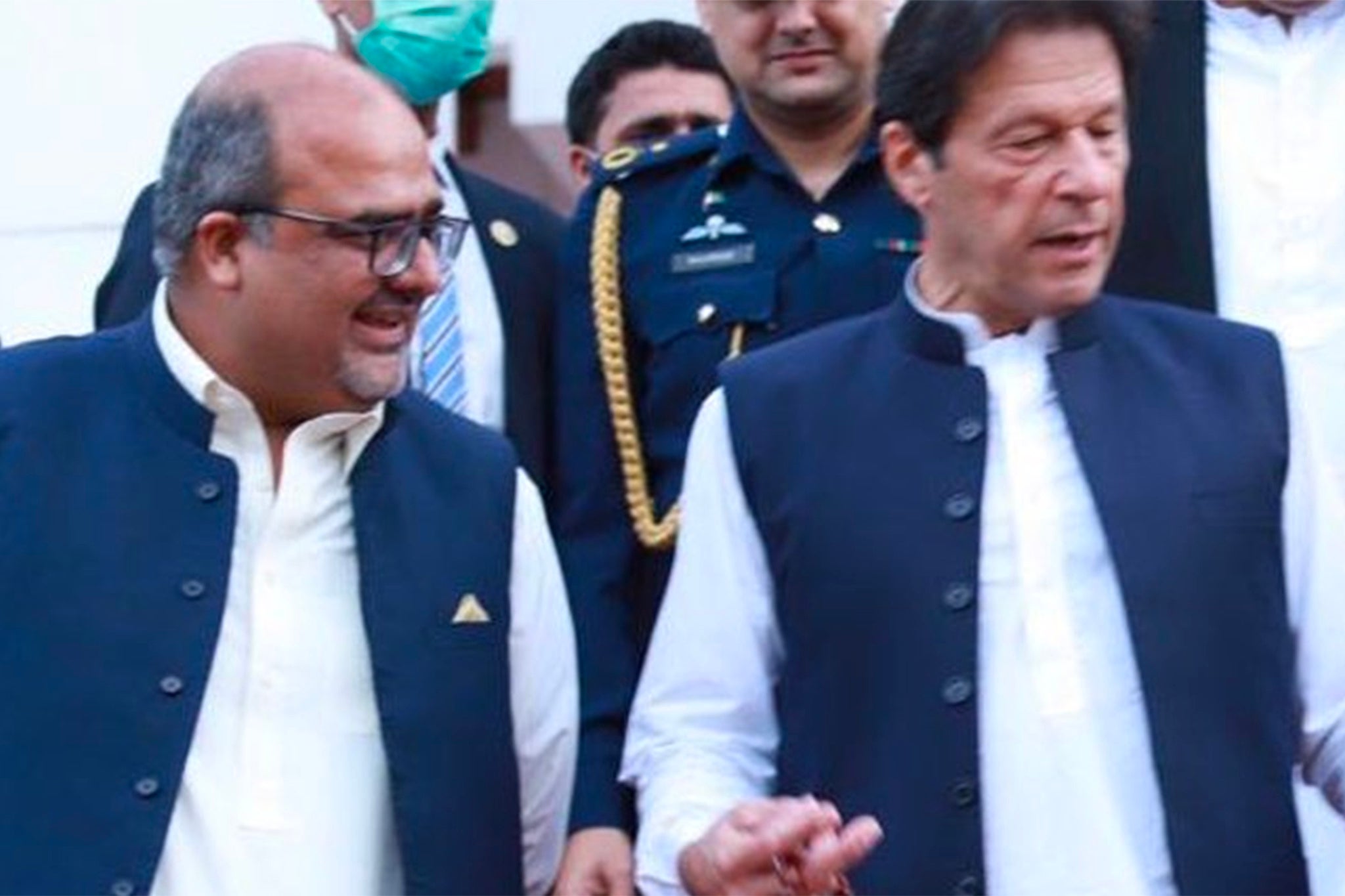Imran Khan adviser launches legal action against Pakistan government following UK acid attack
Shahzad Akbar, who sought refuge in Britain after leading Pakistan’s efforts to combat corruption before Mr Khan was toppled from power two years ago, was lucky not to lose his sight in the attack which took place in front of his daughter
Your support helps us to tell the story
From reproductive rights to climate change to Big Tech, The Independent is on the ground when the story is developing. Whether it's investigating the financials of Elon Musk's pro-Trump PAC or producing our latest documentary, 'The A Word', which shines a light on the American women fighting for reproductive rights, we know how important it is to parse out the facts from the messaging.
At such a critical moment in US history, we need reporters on the ground. Your donation allows us to keep sending journalists to speak to both sides of the story.
The Independent is trusted by Americans across the entire political spectrum. And unlike many other quality news outlets, we choose not to lock Americans out of our reporting and analysis with paywalls. We believe quality journalism should be available to everyone, paid for by those who can afford it.
Your support makes all the difference.A senior adviser to the former Pakistani prime minister Imran Khan has launched a legal action against its government, claiming that its feared intelligence agency, the ISI, was behind an acid attack against him at his home in Hertfordshire.
Shahzad Akbar, who sought refuge in Britain after leading Pakistan’s efforts to combat corruption before Mr Khan was toppled from power two years ago, was lucky not to lose his sight in the attack, which took place in front of his daughter, then aged 4, on 26 November last year.
It was saved only by his spectacles, which were badly damaged by the corrosive chemical squirted from a plastic bottle at Mr Akbar when he opened his front door in Royston to a man wearing a motorcycle helmet with its visor drawn down.
The attack caused acid burns that required treatment in hospital on his head and one arm, and has left permanent scars. Mr Akbar told The Independent: “The physical wounds have healed. The psychological ones go deeper.
“They were trying to send me a message: that I am not safe. This time, they weren’t trying to kill me, but were making it clear they could.”

A letter delivered today by solicitors Leigh Day to the Pakistan High Commission in London accuses named ISI and Pakistan army officers, claiming they were also responsible for an attempt to assassinate Mr Khan in November 2022 and the murder of Arshad Sharif, an investigative journalist and TV talk show host who often worked closely with Mr Akbar. Like Mr Akbar, he had fled Pakistan after Khan was ousted.
Mr Akbar told The Independent that both men received death threats from the ISI for continuing to campaign against corruption by politicians and government officials from abroad. However, Sharif was unable to claim asylum in Britain, and was shot dead by a paramilitary police unit in Kenya in October 2022.
Mr Akbar’s lawyers’ letter states that his death was initially described as a case of mistaken identity, but a fact-finding report by Pakistan’s interior ministry concluded it was “a planned, targeted assassination with transnational character”.
The letter also cites the fact that on 27 May last year, Mr Akbar’s brother Murad was abducted from his home in Islamabad by men dressed as police officers. After his family filed a habeas corpus case, an Islamabad judge ordered his release.
But Pakistan’s law enforcement agencies denied all knowledge of his arrest or whereabouts, while Mr Akbar was told by ISI agents that the only way to free his brother would be to return to Pakistan and give evidence in court against Mr Khan - who is currently in prison, facing dozens of what his supporters say are bogus, trumped-up charges.

A senior government official delivered the same message at a press conference in Islamabad, in what Mr Akbar described as attempted “blackmail”. Mr Akbar refused.
Three months after his brother was detained, diplomatic pressure from Britain finally secured his release. Mr Akbar, who currently works for a human rights organisation in London, said the impact of the attack on his family had been devastating:
“I’m not allowed to go inside my children’s school, which means I feel stigmatised and isolated from the other parents. My daughter was standing next to me when I was attacked and she is traumatised. I feel guilty for putting my wife and kids at risk.”
He said he had installed an array of security systems with the help of the police, “but at the end of the day, if they want to kill me, they will. I hope my legal action will hold those responsible to account”.
Asked about the case, the Pakistan High Commission referred to a press conference in December, when a spokesman for the country’s foreign ministry said: “We reject any insinuations of Pakistan’s involvement and that of Pakistani agencies in such a heinous attack. It is not our policy to target our own nationals abroad.”

Join our commenting forum
Join thought-provoking conversations, follow other Independent readers and see their replies
Comments